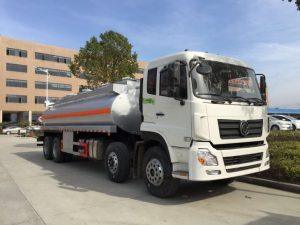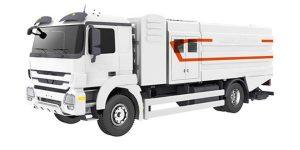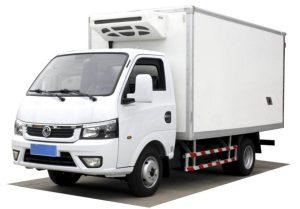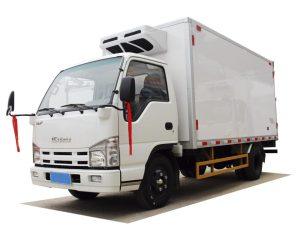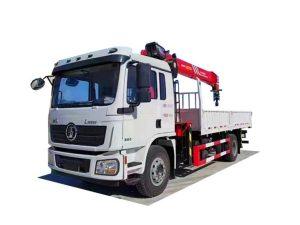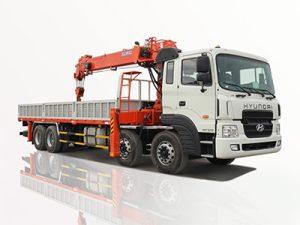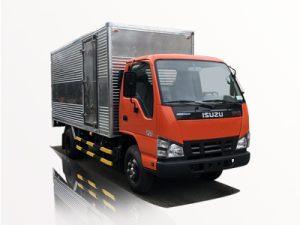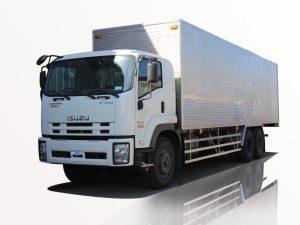Monday to Saturday - 8:00 -17:30
Integrated Tow Truck: The Ultimate Guide to Efficient Vehicle Recovery
Integrated tow trucks have revolutionized the way we think about vehicle recovery and transportation. These vehicles are designed to consolidate various towing and recovery features into one powerful machine, making them indispensable for many towing companies and roadside assistance services. This article will delve deep into the concept of integrated tow trucks, exploring their benefits, types, operational mechanisms, and best practices for their use.
Understanding Integrated Tow Trucks
An integrated tow truck merges the functions of a traditional wrecker and a flatbed into a single vehicle. This fusion allows for greater versatility, making it easier to handle a variety of towing scenarios. Unlike conventional tow trucks, which may rely on external accessories, integrated tow trucks have built-in systems that streamline towing processes.
How Integrated Tow Trucks Work
Integrated tow trucks employ specialized mechanisms that allow for hooking up and lifting vehicles efficiently. Their design typically involves:
- Multi-Purpose Boom: A powerful boom that can extend and retract to accommodate various vehicles.
- Integrated Winches: Built-in winches to pull vehicles up onto the truck bed or lift them for towing.
- Advanced Stability Features: Outriggers and other stabilization features that enhance safety during operations.
Types of Integrated Tow Trucks
There are several types of integrated tow trucks, each designed for specific applications and carrying capabilities. Common types include:
1. Integrated Heavy-Duty Tow Trucks
These are designed for towing larger vehicles, including buses and trucks. They often have higher weight capacities and robust engines.
2. Integrated Medium-Duty Tow Trucks
Medium-duty trucks cater to a range of vehicles, from commercial vans to larger SUVs. They provide a balance between power and maneuverability.
3. Integrated Light-Duty Tow Trucks
Light-duty integrated tow trucks are perfect for smaller vehicles, such as sedans and compact cars. They are often more fuel-efficient and easier to operate in urban environments.
4. Integrated Rotator Tow Trucks
These trucks feature a rotating boom capable of lifting vehicles in tight spaces. Ideal for complex recoveries, rotator trucks are often used in accident situations.
Key Features of Integrated Tow Trucks
Understanding the features of integrated tow trucks is essential for selecting the right one for your needs. Key features include:
| Feature | Description |
|---|---|
| Load Capacity | Integrated tow trucks come with various load capacities depending on the model, influencing the types of vehicles they can tow. |
| Winch Strength | The integrated winch is a critical component, providing the necessary power to lift and pull heavier vehicles. |
| Control Systems | Operator controls vary from simple levers to advanced digital displays, providing ease of use and precision. |
| Safety Features | Integrated tow trucks often include stability systems and emergency shut-offs to enhance operator and public safety. |
| Versatile Configurations | Along with standard towing options, integrated tow trucks may offer configurations for flatbed transport and heavy-duty pulling. |
Advantages of Using Integrated Tow Trucks
Integrated tow trucks offer numerous benefits to operators and service providers alike:
1. Efficiency in Operations
With various features combined into one truck, operations become simpler and faster. This efficiency translates into quicker response times for service calls.
2. Cost-Effectiveness
Investing in an integrated tow truck can reduce overhead costs. Fewer vehicles in a fleet mean lower maintenance and insurance expenses.
3. Versatility
Integrated tow trucks can adapt to various tasks, such as towing, recovering, or transporting vehicles, making them ideal for a range of industries.
4. Enhanced Safety
With built-in safety features and stability systems, integrated tow trucks improve the safety of both the operator and the public during towing operations.
5. Improved Payload Management
Operators can manage weight distribution better with an integrated design, reducing the risk of accidents caused by unbalanced loads.
Selecting the Right Integrated Tow Truck for Your Needs
When looking for an integrated tow truck, consider the following factors:
1. Intended Use
Determine the primary vehicles you’ll be towing. Knowing if you need a light, medium, or heavy-duty truck will dictate your choices.
2. Budget
Integrated tow trucks come with varying price tags. Set a clear budget to ensure you get the best value for your investment.
3. Reviews and Ratings
Research customer reviews and industry ratings to gauge reliability and performance. Consider brands with a strong reputation for service and parts availability.
4. Aftermarket Support
Ensure there is sufficient after-sales support. A well-supported truck will have more accessible maintenance and repairs, minimizing downtime.
5. Fuel Efficiency
Look for models that offer better fuel efficiency, especially if you anticipate high operational usage, helping to maintain lower costs over time.
Practical Tips for Operating Integrated Tow Trucks
To maximize the potential of your integrated tow truck, follow these practical tips:
1. Regular Maintenance
Schedule routine inspections and maintain key components to ensure longevity and optimal performance. Regular checking of the winch, boom, and tires is crucial.
2. Proper Training
Ensure that all operators undergo training on the specific model of the truck. Proper training prevents accidents and enhances operational efficiency.
3. Load Management
Prioritize safe load management. Always ensure the vehicle’s weight does not exceed the truck’s capacity and balance the load evenly.
4. Stay Updated on Regulations
Familiarize yourself with local regulations regarding towing and recovery. Ensure compliance to avoid penalties and ensure safety on the road.
5. Invest in Technology
Consider equipping your truck with GPS and tracking systems. This addition can enhance efficiency in dispatching and route planning.
Common Misconceptions About Integrated Tow Trucks
Several misconceptions can lead to misunderstandings about the capabilities and uses of integrated tow trucks.
1. They’re Only for Heavy Vehicles
While integrated tow trucks can handle heavy vehicles, they also effectively transport light-duty cars, making them versatile across different towing needs.
2. They Are Too Expensive
The higher upfront cost may deter some, but savings in operational costs can offset this over time, making integrated tow trucks a worthwhile investment.
3. They’re Complicated to Operate
Many integrated tow trucks come with user-friendly interfaces and require only basic training to operate safely and efficiently.
4. Only Large Fleets Need Them
Small businesses and independent operators can significantly benefit from integrated tow trucks, utilizing their features for various jobs without the need for multiple vehicles.
FAQ
1. What is the main difference between integrated tow trucks and traditional tow trucks?
Integrated tow trucks combine multiple features into one vehicle, allowing for a wider range of towing capabilities without needing additional equipment or vehicles.
2. How much can an integrated tow truck typically lift?
Integrated tow trucks can vary greatly in lifting capacity, with lighter models lifting up to 10,000 pounds, while heavy-duty models can exceed 50,000 pounds.
3. Are integrated tow trucks suitable for off-road recovery?
Yes, many integrated tow trucks are equipped with features that allow for off-road recovery, making them versatile for various environments.
4. What should I consider when financing an integrated tow truck?
Consider your budget, interest rates, the total cost of ownership, and the expected return on investment based on your operational needs.
5. Can I use an integrated tow truck for non-towing purposes?
Yes, many features in integrated tow trucks make them useful for other purposes, such as transporting goods or equipment.
6. How do I find the right supplier for an integrated tow truck?
Research online reviews, ask for recommendations from other truck owners, and compare pricing and service options from multiple suppliers before making a decision.


